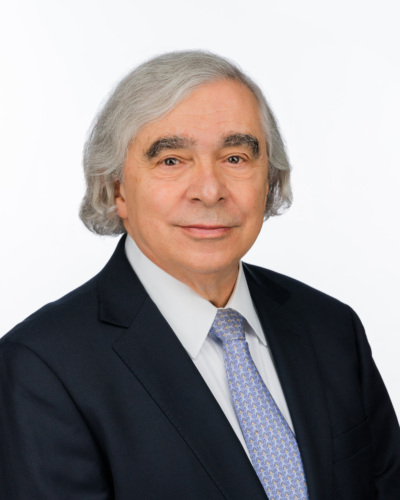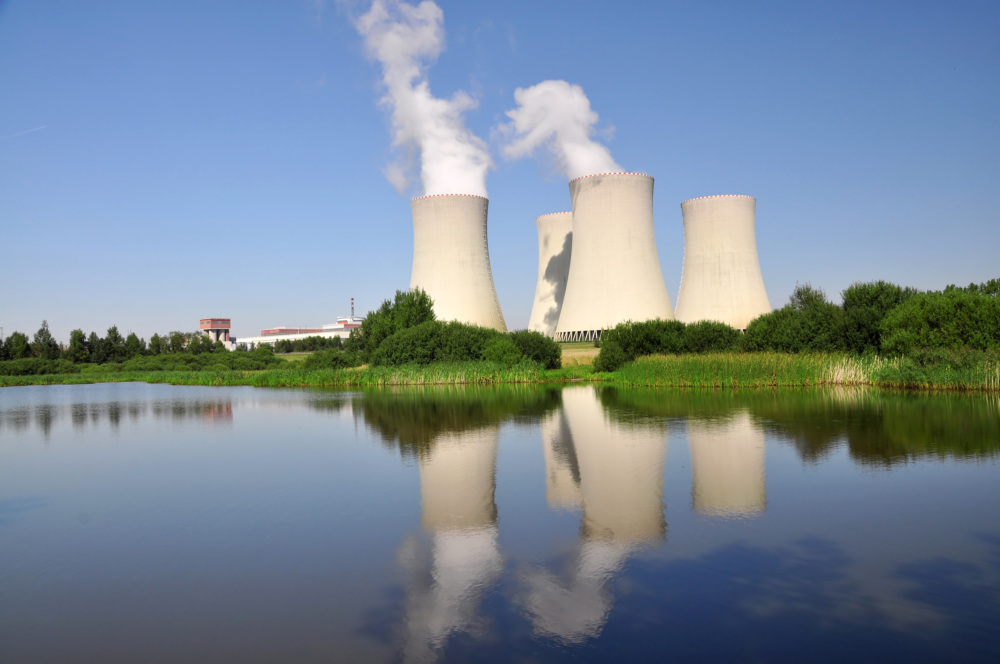
Ernest J. Moniz
Co-Chair and Chief Executive Officer, NTI
The following is a partial transcript. The transcript originally appeared on CNN.
CHRIS CUOMO: President Trump with a warning for Iran just one day after pulling out of the nuclear deal. This comes as the White House just released a statement condemning Iran's rocket attack into the Golan Heights and supporting Israel's right to defend itself.
Joining us now, former U.S. secretary of energy under President Obama, Ernest Moniz. He played a key role in negotiating the Iran nuclear with former Secretary of State John Kerry in 2015. It's good to have you.
ERNEST MONIZ, FORMER SECRETARY OF ENERGY UNDER PRESIDENT OBAMA: Good morning.
CUOMO: All right, first, let's take a step back and then we'll take a couple of step forward.
The president says I had to get out of this deal. It was a lousy deal. Why was it lousy? Because it was going to allow Iran to get back to making nukes in the short-term. We couldn't look at their military sites. We didn't get enough. They got too much and it allowed them to keep creating chaos all over the region. Fair points?
MONIZ: Not really. Most of them are frankly incorrect. Certainly the statement about not having access to military sites is simply untrue. Any site that is suspect is fair game for the international inspectors. And what that really says is that the United States and Israel and others must maintain our strong intelligence activities to make sure we can direct the inspectors to those sites.
That verification regime, according to our country's leading nuclear scientists, is the gold standard. Secretary Mattis just said a couple of weeks ago how robust it is. The verification regime is the real strength of this accord.
So the accord also limited Iran for 15 years in terms of what it could do, most especially took their ten tons of uranium, enriched up to 20 percent, down to very low enrichments for 15 years. That is a period in which we would be building on that foundation to address the future nuclear program and all of these others regional issues that give us so much of a problem. But I want to make it clear that even when those nuclear restrictions go away after 15 years, we are not back to where we were at all because we have the verification regime.
And the last point I'll make, Chris, is, if you think about it, if Iran is going to resume a nuclear weapons program, they're not going do it in the open. They're not going to do it at the sites that they declare to the international inspectors. So it is the forever commitment to allow inspectors to go anywhere and to do so within a fixed time period, that is a unique verification measure and we certainly don't want to jeopardize that. I'm afraid the president's action did just that.
CUOMO: Not enough is what the president says. They got too much money back from the United States. They had too much freedom and that's why we're seeing the chaos in the region.
So he gets out of the deal and literally, right after that, we have Israel say, Iran is behind missiles that landed in the Golan Heights. They return fire in Syria at what they believed to be the Iranian led sources of that, you know, that incursion into their sovereign space. Do you see a connection and do you believe that we are getting closer to an ugly reality?
MONIZ: Well, first of all, the issue about all this money coming from the United States to Iran, we should make clear that apart from a settlement of a long-standing litigation to return funds to Iran, the funds we are releasing are funds that Iran could not access having sold oil and the like, not –
CUOMO: Right, but the money you give them is money they can use for a bad purpose. That's the theory.
MONIZ: Sure.
CUOMO: But let's try and focus now, Ernest, on where we are and what just happened. Do you believe it's an extension of the move by the president? Is this — are we going to see more of these types of provocations from Iran right now?
MONIZ: Well, first of all, I think there's no question that we all oppose Iran's regional activities.
And I believe, as the president said, that Israel has plenty of reason for concern with Iran's foothold in Syria and with their supply of weaponry to Hezbollah. It's a long-standing problem.
And Israel has the right to defend itself. And I believe we, and our allies, as shown by the joint missile strike on chemical facilities a few weeks ago, should be pushing back on these.
The problem is, and I think you're implying it correctly, that the action taken by the president on the Iran deal certainly opens up the possibility of a slippery slope towards direct military confrontation that is unlikely to be in any way stabilizing for the region or in the long-term interest of the United States or Israel. So I think this will, frankly, turn out to be a strategic error, and we have to work very hard to hopefully see Iran and our allies continue working the deal until we can find a way to perhaps address these other issues together and continue with the nuclear restrictions that we have.
CUOMO: Ernest Moniz, appreciate your perspective, as always. It's always been about what comes next if you get out of this deal. We're waiting on that answer. Be well.
MONIZ: And no plan B at the moment.
…
Sign up for our newsletter to get the latest on nuclear and biological threats.
NTI Co-Chair and CEO Ernest Moniz discussed the Iran Deal on PBS' NewsHour.
NTI Co-chairman and CEO Sam Nunn's interview about the Iran agreement, with Denis O'Hare and Jim Burress on "Closer Look," WABE radio in Atlanta
At this critical juncture for action on climate change and energy security, 20 NGOs from around the globe jointly call for the efficient and responsible expansion of nuclear energy and advance six key principles for doing so.
